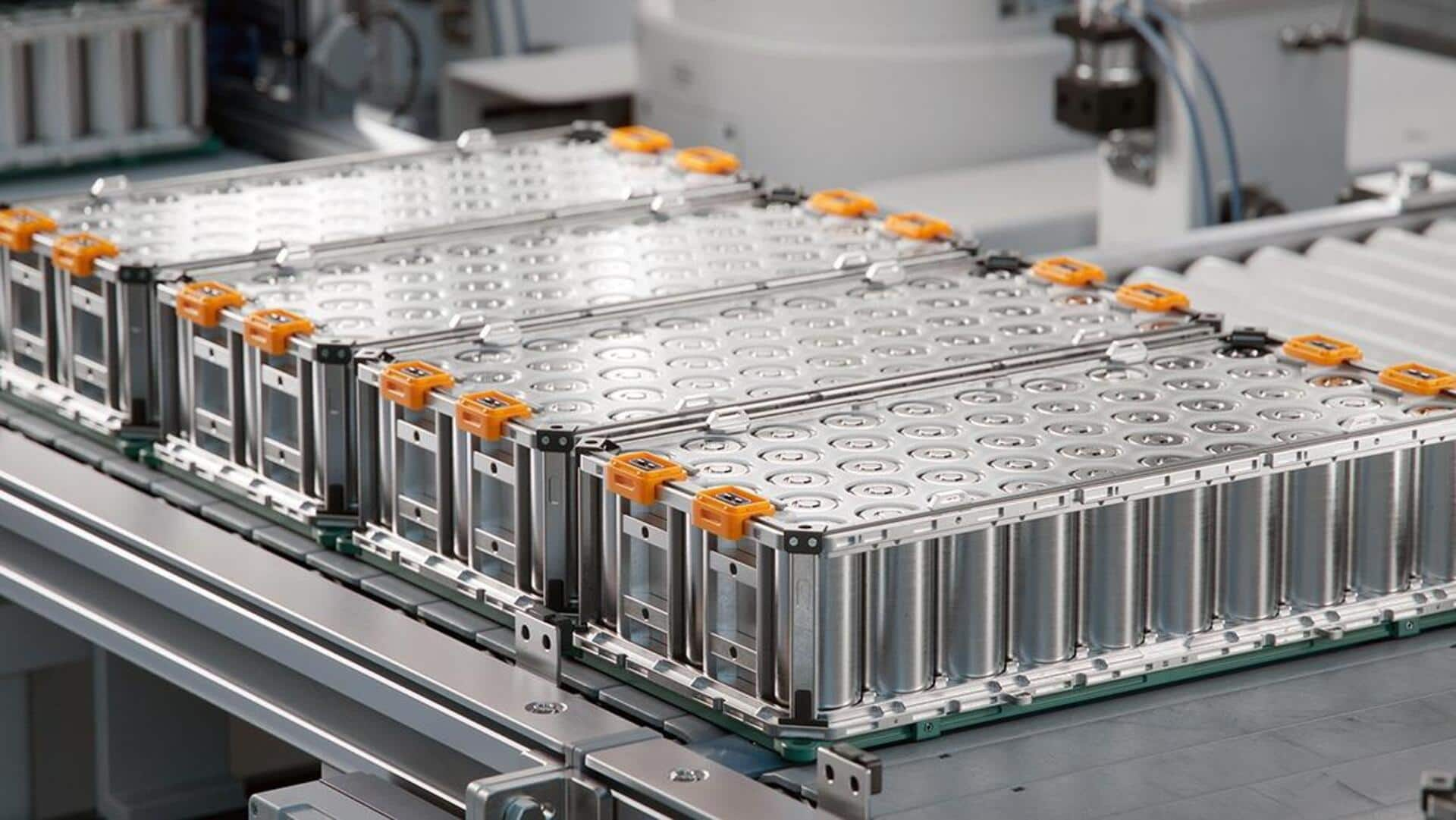
This solid-state EV battery promises longer range, faster charging
What's the story
Leading US-based battery technology company Microvast has made major progress in its All-Solid-State Battery (ASSB) technology. The firm touts that this breakthrough could improve safety standards, energy density, and efficiency for critical applications. This revolutionary tech is expected to transform the electric vehicle (EV) industry by providing longer driving ranges and shorter charging times.
Technological innovation
A unique approach to battery technology
Microvast's ASSB technology differs from conventional lithium-ion batteries that employ liquid electrolytes. It uses a bipolar stacking architecture and a proprietary all-solid electrolyte separator membrane. This allows the innovative design to avoid the safety hazards and energy density constraints of liquid electrolytes, allowing a single battery cell to achieve much higher voltages and simplifying the system structure as a whole.
Performance boost
Outperforming traditional batteries
Microvast's ASSB technology can reach voltages much higher than conventional lithium-ion and semi solid-state batteries, which usually operate at nominal voltages of 3.2V to 3.7V per cell because of the limitations of liquid electrolytes. The company's CTO, Dr. Wenjuan Mattis, highlighted that their batteries can operate at voltages that are impossible to achieve with conventional designs, because of the lack of liquid electrolytes.
Separator significance
The secret behind high voltage capability
The high voltage capability of Microvast's batteries is enabled by the removal of liquid electrolytes and the use of a proprietary all-solid separator. Made from an advanced polyaramid material, this non-porous separator is designed for solid-state applications. It offers excellent ionic conductivity, structural stability, and long-term durability, solving one of the most critical technical challenges in solid-state battery technology.
Design efficiency
Simplifying battery system with bipolar design
Microvast's bipolar design drastically minimizes interconnections within cells, modules, and packs. This simplification improves both energy efficiency and operational safety of the entire battery system. The company's solid-state batteries can be tailored to fulfill specific energy and spatial requirements of different applications, especially in EVs, advanced robotic systems, and AI-driven technologies.
Production phase
Microvast moves toward pilot production
Now, Microvast is moving to the pilot production study phase to continue developing and scaling its ASSB technology. This phase will address the unique manufacturing challenges posed by solid-state batteries. "Our solid-state battery innovation represents a significant leap forward in addressing real-world safety and efficiency challenges," said Microvast CEO Yang Wu, emphasizing how their tech breakthrough could impact industries needing reliable and safe energy storage solutions.